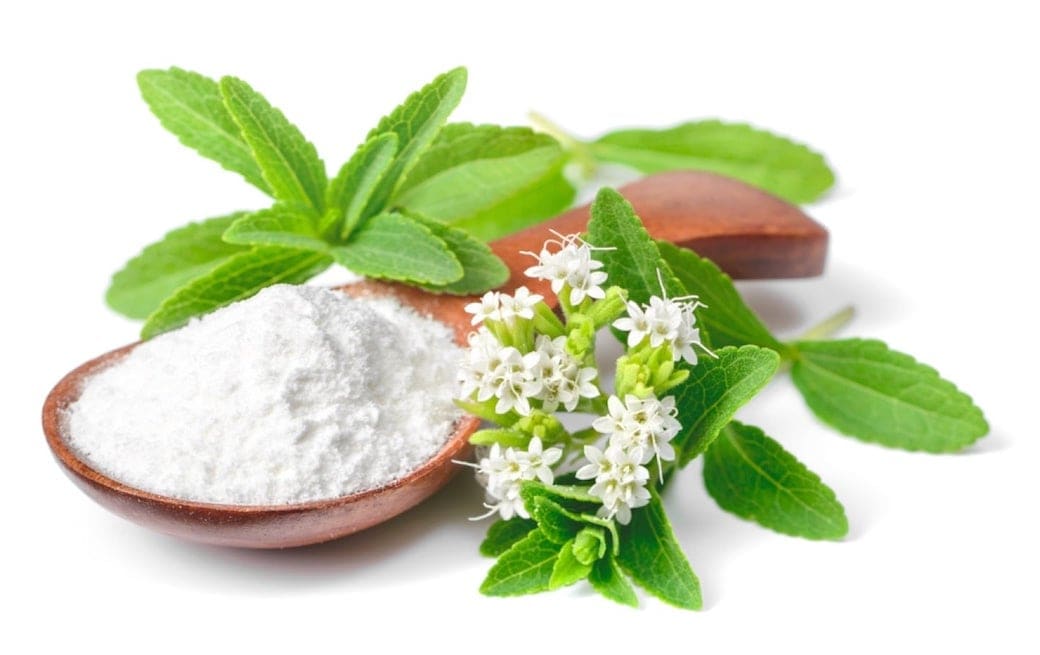As the health risks connected to standard sweeteners like sugar become more apparent, many people are increasingly starting to seek healthier substitutes. And stevia is one of the sweeteners that has seen a surge in popularity and demand among health-conscious consumers.
Stevia is a natural, plant-based sweetener derived from the leaves of the Stevia rebaudiana plant, native to South America. Unlike artificial sweeteners, which are largely produced in modern laboratories, stevia has been cultivated and used by indigenous groups, mainly in Paraguay and Brazil, for centuries.
Stevia's Natural Origins
Stevia rebaudiana is a small, green, leafy plant that belongs to the Asteraceae family, which also includes sunflowers and daisies. The plant's leaves contain several sweet-tasting compounds known as steviol glycosides, with stevioside and rebaudioside A being the most abundant and responsible for the plant's sweetness.
Historically, the Guarani people of South America have used stevia leaves as a sweetener and medicinal herb for centuries. The plant's sweet taste was first discovered by European traders in the 16th century, but it wasn't until the late 20th century that stevia gained global recognition as a natural sweetener.
Distinguishing Stevia from Artificial Sweeteners
Artificial sweeteners, such as aspartame, saccharin, and sucralose, are synthetic compounds created in laboratories. They are often hundreds or even thousands of times sweeter than regular sugar, and their production processes involve complex chemical reactions.
In contrast, stevia is a natural, plant-derived sweetener that is typically 200 to 300 times sweeter than sugar. The steviol glycosides responsible for its sweetness are extracted from the stevia plant through various processes, including water extraction, and purification methods.
Unlike artificial sweeteners, which have been associated with potential health concerns and regulatory scrutiny, stevia is generally recognized as safe (GRAS) by various health authorities, including the U.S. Food and Drug Administration (FDA) and the European Food Safety Authority (EFSA).
Health Considerations
One of the primary reasons for stevia's popularity is its potential health benefits compared to regular sugar and artificial sweeteners. Here are some key health considerations:
- Low-Calorie and Non-Nutritive: Stevia is a non-nutritive sweetener, meaning it contains virtually no calories. This makes it an attractive option for individuals seeking to reduce their calorie intake or manage their weight.
- Glycemic Index and Diabetes Management: Stevia has a glycemic index of zero, meaning it does not raise blood sugar levels. This characteristic makes it a suitable sweetener for individuals with diabetes or those concerned about maintaining healthy blood sugar levels.
- Dental Health: Unlike regular sugar, stevia does not contribute to tooth decay or cavities, as it is not metabolized by the bacteria in the mouth that produce acid and erode tooth enamel.
- Potential Antioxidant Properties: Some studies suggest that stevia may have antioxidant properties and potential benefits for blood pressure regulation, though more research is needed to confirm these claims.
However, it's important to note that while stevia itself is considered safe, some stevia-based products may contain additional ingredients or fillers that may have their own health implications. Always read labels carefully and consult with a healthcare professional if you have specific dietary concerns or medical conditions.
Final Thoughts
In conclusion, stevia is a natural, plant-based sweetener derived from the Stevia rebaudiana plant, not an artificial sweetener. Its natural origins, safety profile, and potential health benefits have contributed to its growing popularity as a sugar alternative. However, as with any food or ingredient, moderation is key, and it's essential to consider individual dietary needs and preferences.
Whether you're looking to reduce your sugar intake, manage your weight, or simply explore new sweetener options, stevia can be a viable and natural choice. By understanding its origins and distinguishing it from artificial sweeteners, you can make an informed decision about incorporating stevia into your diet.
